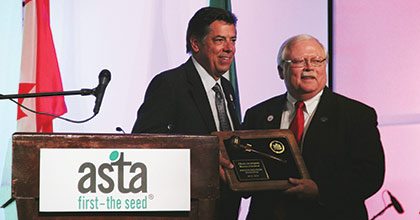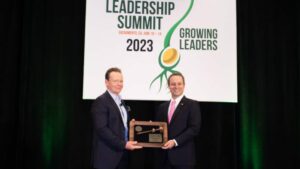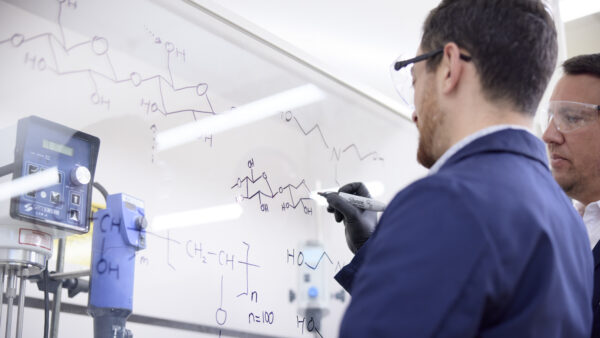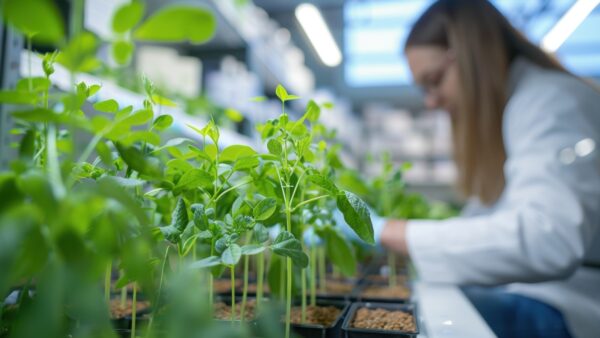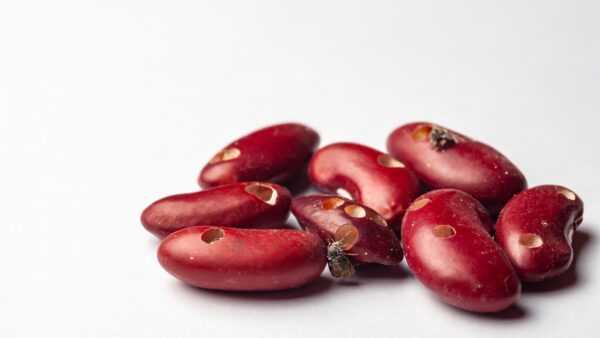Craig Newman (center) with his family who figure prominently in his life when he’s not busy acting as president and CEO of AgReliant Genetics or as chair of ASTA.
Craig Newman Takes Over as Chair of the American Seed Trade Association
AgReliant’s CEO caps off a busy year with his appointment to the top spot on ASTA’s board of directors.
Craig Newman has had an eventful year.
At the American Seed Trade Association’s annual convention in June, Newman was named chairman of the 130-year-old organization. It comes just a little more than a year after he was appointed president and CEO of AgReliant Genetics, the third-largest seed corn company in the United States.
To top it all off, Newman welcomed three new grandchildren into the world in the last year or so.
“So yes, it has been busy,” he says with a laugh.
Newman recently spoke with Seed World about his past experiences and where he wants to steer ASTA during his year-long term as chair.
“My biggest goal is to move forward to implement our new strategic plan—two years ago, we did quite a bit of work talking to our members to find out what their concerns are, and when we gathered that information and summarized and analyzed it, we streamlined it into a working document,” says Newman. “Now, my role, as I see it, is to really get to work and implement that plan.”
Newman says that the “key points” that he and ASTA will be addressing on behalf of the association’s members have to do with strengthening intellectual property rights, expanding seed producers’ international business opportunities and working to make ASTA a high-value resource for the seed industry. Another key point, he says, is working toward “building a powerful grassroots force for resolving federal, state and local seed trade issues” by helping foster the newly-introduced Seed Advocate program, an educational effort designed to inform lawmakers and the general public about some of the issues the seed industry is facing.
Craig Newman (right) takes over chair duties for ASTA from outgoing chair Blake Curtis (left) at ASTA’s annual meeting in late June.
Long-term Commitment
While that’s a lot to do during a one-year term as chair, Newman isn’t overly worried about being able to see his aims through, since ASTA’s governance structure permits him to continue sitting on the board for another couple of years.
“It’s really a six-year commitment,” he says, noting that he’d already traveled up the board ranks as second and first vice chair of the organization. “It’s a good thing for continuity, so I’m still going to be involved for the next three years and be able to wrap up some of the projects that we’re starting now.”
Newman became involved in ASTA nearly 35 years ago, but says he originally had no designs on eventually becoming one of the leaders of the organization. When he started out, Newman was more focused on growing the company he was working for at the time, Akin Seed, a small seed business in St. Francisville, Ill., which he joined in the late 1970s after spending eight years at Procter & Gamble.
“People kind of wondered ‘What the heck are you doing here?’” chuckles Newman, referring to his decision to switch career paths and join Akin. “It was a position where I’d be the highest non-owner in the company, and at the time, the challenge was something that appealed to me. The idea of trying to make something big out of something small was something I really wanted to be a part of.”
Newman has been with the company for the past 30 years, through mergers and buyouts, and last year rose to the top position in what’s now known as AgReliant Genetics.
“Once you start building a company, you get [committed] to that and the people you’ve brought on board,” he says. “I love it. I’ve loved working for the company, and I’ve been so committed to building it up that it’s great to see where it is now.”
Newman also notes that if he’d stayed with his previous employer he might have eventually had to move his family far away from his parents in Indiana. “We had just had our son, and I wanted to make sure that I didn’t wind up somewhere across the country where my parents wouldn’t ever get the chance to meet their grandson,” he says.
A devoted husband, father and grandfather, Newman says family figures largest in his life, and he spends most of his spare time with family members. “My family takes up a lot of my free time—I’ve got one son and three daughters, and traveling to see them and my grandkids is pretty much what takes up most of the downtime,” he says. “Now that my kids are all grown and moved out—they were really my only hobby—I have some more free time to spend on industry issues.”
Getting More Involved
Newman began focusing on getting more involved in the industry seven years ago, when he moved into his role as vice president of ASTA’s central region.
“The very first meeting, I was just amazed and relieved all at once that there are some real professionals representing our company and the industry out there. Andy LaVigne and that group are just great—I was just so impressed,” says Newman, who notes that since getting more involved with ASTA at a higher level, he’s been consistently astounded by the level of cooperation between the association’s 700-plus members.
“It’s just such a competent, energetic group that’s looking out for the whole industry,” he says. “That was one of the things that impressed me the most—there’s no company biases during the meetings; I mean everybody is looking out for the welfare of the whole industry.”
Newman says that’s all part and parcel of working in the seed industry, which he describes as one of the “friendliest” competitive industries around.
“The people in agriculture are honest, generally speaking, and they’re hardworking. They’re professionals, but they’ll help each other—that’s not very common in most industries,” he says. “That’s part of why I like it so much; it’s been very good to me.”
Newman views his work with ASTA as a way to give something back to the people who have helped grow his career and the industry that he’s become a fixture of.
“[The seed industry has] been good to me, and I felt like I needed to be involved. If you’re not involved, you don’t have a voice, and our company is big and complicated enough that we need to have a voice and we need to make our concerns heard,” explains Newman. “So I felt motivated by that at first, but then you start to get more and more involved and you really see how hard people are working on your behalf and you really just want to make sure and help them succeed in any way you can.”
One of the people working on behalf of the seed industry is ASTA president and CEO Andy LaVigne, who says that Newman’s wealth of experience is definitely an asset at the head of the association’s board.
“We’ve got good diversity in our leadership, and Craig brings in a good, strong understanding of the seed industry in the Midwest, and the various issues that are impacting that region,” says LaVigne. “But he’s also coming in from a company that has a very diverse background—AgReliant is owned by two large, global businesses that are involved in not only row crops but also vegetables and flowers.
“So he’s got a great, diverse background that benefits our membership as a whole, so we’re really pleased to have him step into this role,” LaVigne says.
John Towns
Where the American Seed Trade Association is HeadingAmerican Seed Trade Association president and CEO Andy LaVigne spoke with Seed World about some of the plans the association firmed up for the coming year at its annual meeting, which took place in Nashville this past June. Lines of Communication“We’re trying to stay focused on those areas, and really work on advocacy and communications along those lines,” says LaVigne, who notes that ASTA’s new Seed Advocate program is one of the initiatives the association has been setting up to help its member organizations become better equipped to help educate lawmakers and the public about issues the seed industry is facing. |



